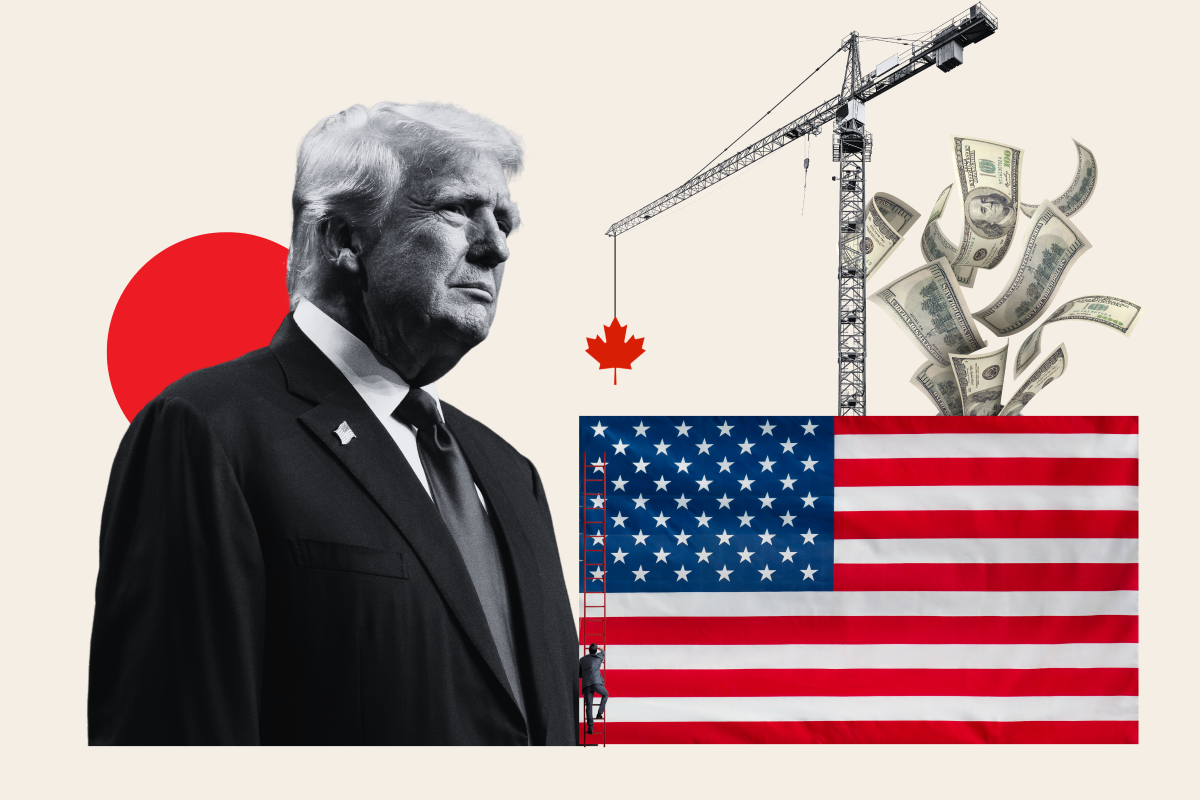President-elect Donald Trump has his eyes on Canada and keeps coming back to the idea of making it America's 51st state—no matter how many times Canadians tell him there's no chance it'll happen.
If it were, it looks like the U.S. economy would benefit. Canada is a vast, resource-rich, and advanced Western economy. However, it also carries some fiscal issues, with high debt and a large deficit, not too dissimilar to the U.S. itself.
Moreover, it has an expensive social and welfare system, and free healthcare—things it would be reluctant to give up. So would Canada make the U.S. richer or poorer? Newsweek asked economists for their views. Here's what they said.
Ken Kuttner: U.S.-Canada Trade Is Already Large
Obviously, the overall size of the economy ("GDP") would be much larger if Canada became part of the U.S. This is just arithmetic. The question is whether per-capita income would increase or decrease.
It could increase if (a) the union promoted trade, or (b) allowed the economy to enjoy increased "economies of scale." There's already a lot of trade and both countries are already large, so I doubt there would be any significant gains.
Ken Kuttner is Robert F. White Class of 1952 Professor of Economics at
Williams College.

Jean-Paul Lam: Costly Transition—But U.S. Would Be Richer Overall
Let's entertain the thought, even if this is the most ridiculous idea. If Canada became the 51st U.S. state, it would likely make the U.S. economy richer overall, but the effects would vary by sector and region.
Canada's vast natural resources would boost the U.S.'s supply of energy and materials, reducing the price of energy and its dependence on other countries.
Canada's skilled workforce would integrate well and drive innovation and productivity in some sectors, notably energy, AI research, and pharmaceuticals.
However, the transition could be costly. Harmonizing regulations, taxes, and public services will initially strain the already precarious U.S. federal budget position, even if we assume that Canada's social and welfare policies, like universal healthcare, are completely dismantled.
Still, the net long-term impact for the U.S. would be positive due to expanded markets, access to more natural resources, a larger combined GDP (about $26 trillion), and diversified economic strengths.
Jean-Paul Lam is an associate professor in the Department of Economics at the
University of Waterloo.

Julian Vikan Karaguesian: Geography, Population, and Productivity Growth Equals Richer U.S. Economy
I'm not making the case for Canada joining the U.S. as the 51st state, but rather directly answering a straight question about whether that would make the U.S. richer.
It would make the U.S. economy richer for three key reasons.
First, the U.S. would gain a geographic area slightly larger than the U.S., and one that is endowed with immense amounts of fresh water, energy (including uranium), critical minerals, and land. Canada is a natural resource superpower, and this fact would become part of the U.S.
Second, Canada has vast unexploited potential, which would further boost U.S. GDP and GDP per capita over the medium-term.
Furthermore, Canada's 41 million people would be added to the U.S.'s 343 million, making the population of the hypothetically enlarged U.S. almost 400 million, with over $27 trillion GDP—the largest economic area in the world, however one measures economic size.
This would give the U.S. even more global and regional heft than it has already. Moreover, with Canada's riches in natural and other resources, the U.S. would be more self-sufficient than it is already.
Third, the U.S.'s higher rate of productivity growth would spread to Canada by virtue of the U.S.'s scale and more competitive markets, boosting job opportunities, profits, and incomes.
How good this would be for the U.S. would depend on the terms of the union.
Julian Vikan Karaguesian is a lecturer in the Department of Economics at McGill University and worked for Canadian Ministry of Finance for more than 25 years.




















 English (US) ·
English (US) ·